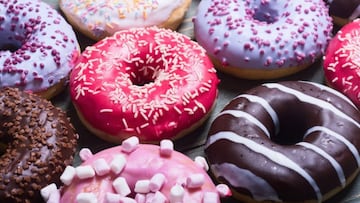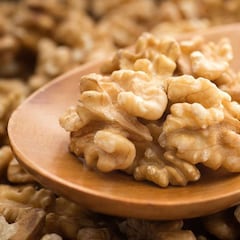The eight foods that Harvard recommends eliminating from your diet
A gastroenterologist and associate professor of medicine at Harvard Medical School shares which foods you should avoid feeling bloated after a meal.

With summer upon us and the heat waves following one another like the seconds on the clock, it is convenient to accompany the battle against high temperatures with an optimal diet. There are many tips about which foods are best that deserve to be listened to; but perhaps those that guide us on what not to put in our mouths are even more important. Especially knowing what to indulge ourselves with when we want to overindulge in a dinner.
And it is that a generous banquet is usually accompanied by pain and bloating, if we have gone too far. As the years go by, these gastric problems become more accentuated, making it necessary to seek out those cures your grandmother told you about that might be hiding in the depths of kitchen cupboards. However, and according to a gastroenterologists and associate professor of medicine at the prestigious Harvard Medical School and her colleague, all this could be avoided as long as we stayed away from eight products.
Objective: eliminate bloating
The recommendation of Jacqueline Wolf, MD, along with her colleague Judy Nee, MD, also an associate professor of medicine at Harvard Medical School, is as simple as eliminating just eight types of food if you want to end bloating.
Related stories
One in ten people suffer from these problems after eating. The factors are not related to what we eat, but to the difficulties of the intestine to absorb these products well. Facilitating this transit is a simple task if the following products are avoided:
- Sweetened foods: Sweets, industrial pastries, bread, sweetened yoghurts, some sauces, juices or soft drinks should be avoided and replaced by whole foods and drinks with less sugar and no gases. The reason is that the cells of the intestine have a hard time absorbing foods that are too sweet.
- Fructose-rich fruits: Wolf recommends that those more sensitive to fructose avoid apples, watermelon, grapes, peaches, and plums; and instead replace it with blackberries, blueberries, pineapple or tangerine.
- Vegetables with fructans and galactans: These complex carbohydrates, present in asparagus, artichokes, leeks, zucchini, onions or beets, the article states, can be replaced by carrots, aubergines, avocados or green beans.
- Milk and other dairy products: Almost 70% of the population digest lactose poorly, so Wolf recommends introducing unsweetened yogurt and hard or aged cheeses into our diets instead of soft ones.
- Legumes: They contain raffinose, a type of sugar that is difficult for the human body to break down, so the study welcomes a substitution with black-eyed beans and green soybeans.
- Sugar substitutes: Avoid sugar alcohols, those that end in '-ol',the use of stevia and monk fruit extract is recommended.
- Grains: If the food contains gluten, digestion is more likely to be difficult, especially for those who are intolerant. The doctor recommends avoiding wheat, barley and rye and going instead with rice, quinoa and oats.
- Fermented foods: Kimchi, kombucha, and sauerkraut are recommended instead.
In addition to these dietary tips, the Harvard doctor recommends accompanying this good diet with practices that will ward off the ghost of bloating that haunts after-dinner meals. These are:
- Avoid swallowing air while eating, i.e. eat slowly and carefully.
- Drink plenty of still water.
- Walk after a meal.
- Massage the abdomen.

